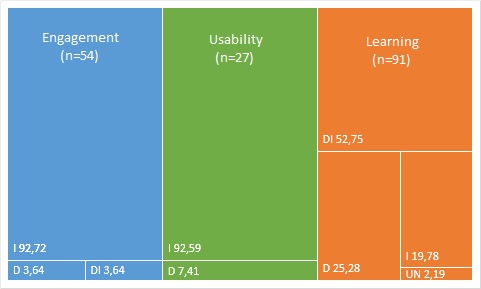Assessment Measures in Game-based Learning Research
A Systematic Review
DOI:
https://doi.org/10.17083/ijsg.v8i1.383Keywords:
Effectiveness, , Digital Game-Based Learning, Assessment Measures, Learning, Engagement, UsabilityAbstract
The use of games in educational contexts is well documented in GBL research. Nevertheless, effectiveness evidence needs to be more extensively analyzed. An effective GBL strategy should address the learning aspects and promote players' engagement in an easy-to-use system. To gather the information already present in literature, we sought to answer how learning, engagement, and usability of games are evaluated in GBL research. We conducted a systematic review of empirical studies in ERIC, IEEE, Springer, and Web of Science databases. We included 91 studies for the final analysis and categorized their measures and instruments. We find a prevalence of learning assessments over engagement and usability assessments. Learning is mainly evaluated by direct measures, while indirect measures mostly assess engagement and usability. The use of indirect measures and instruments without psychometric qualities compromises the strength of the evidence for the effectiveness of game-based learning. Future studies should add direct assessments and indirect measures with psychometric qualities to assess engagement and usability. The study’s limitations are discussed.

Downloads
Published
Issue
Section
License
Copyright (c) 2020 Gabriele Gris, Clarissa Bengtson

This work is licensed under a Creative Commons Attribution-NonCommercial-NoDerivatives 4.0 International License.
IJSG copyright information is provided here.